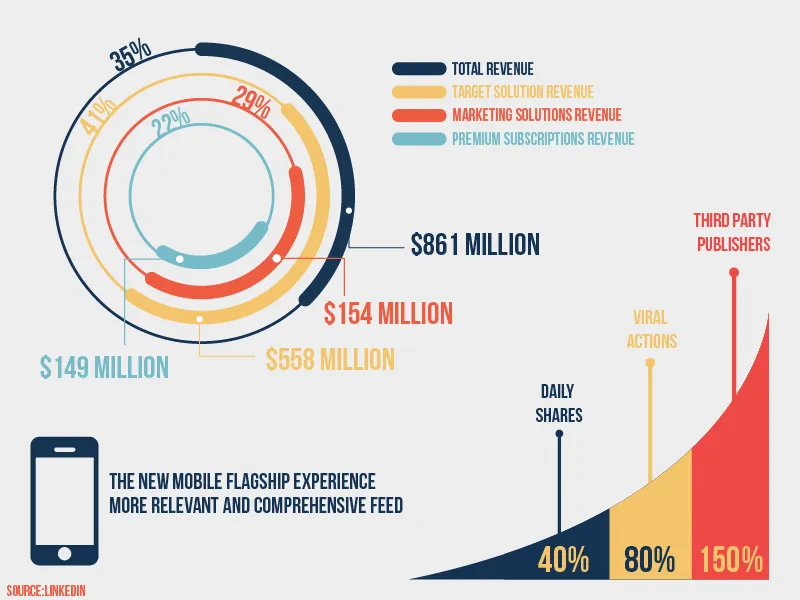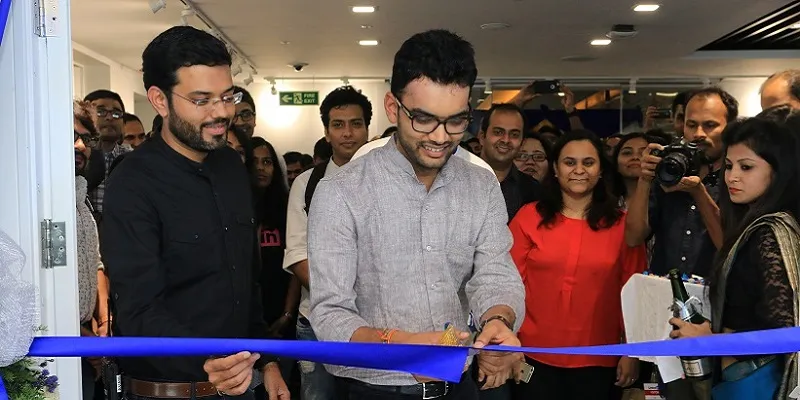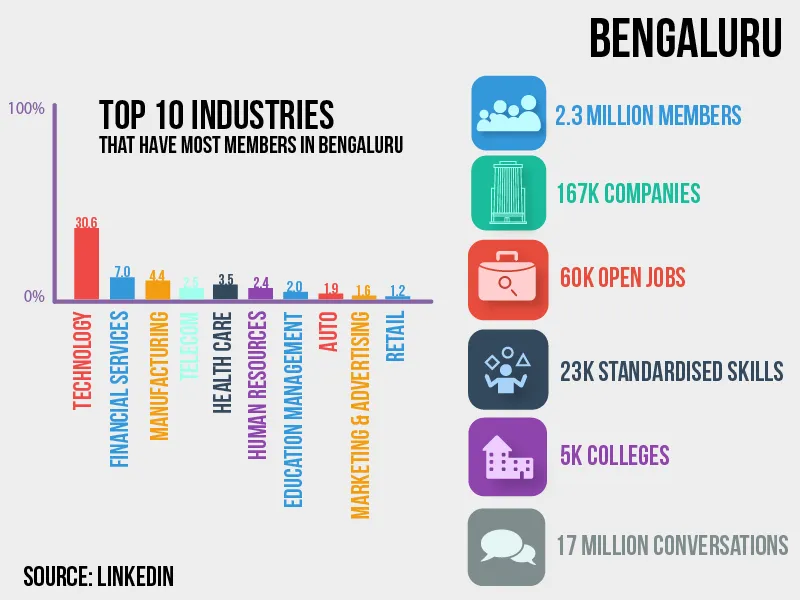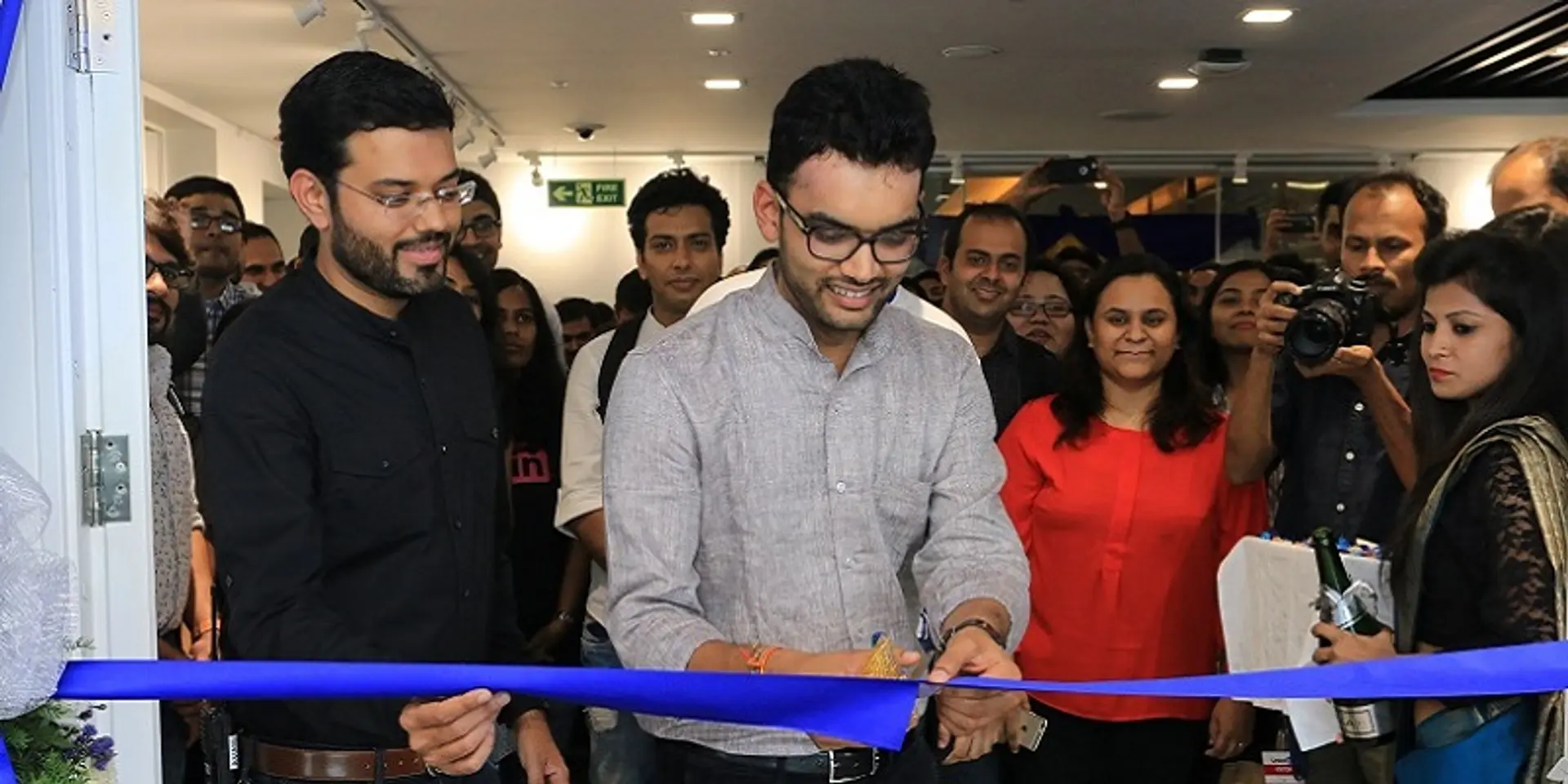LinkedIn sharpens mobile and content strategy for its second largest market - India
“India is our second largest market after the US,” said Allen Blue, Co-founder LinkedIn, at the opening of their new developmental centre at Marathahalli, Bengaluru, in a fireside chat with Akshay Kothari, Country Manager and Product Head, LinkedIn India. Founded in 2002, LinkedIn today is one of the world’s largest professional networks, with over 433 million people on it. This number, Akshay adds, has grown 10x in the past six years.
On what inspired him to start LinkedIn, Allen said,
“The main inspiration of LinkedIn came from our own experiences as entrepreneurs. As an entrepreneur you call on your network all the time. Whether it is looking for co-founders, first customers and VCs, you always ask someone you know to introduce you and to get your foot in the door. We thought, what if we were to make a system where it could be possible for anyone to do that no matter who you are and what you do. We realised that if we could do that then, we could create economic opportunities for people and organisations.”

Today, after 14 years, and a market cap of $18.23 billion, as LinkedIn moves into its 2,22,000sqft office, spread across three floors in Bengaluru, it is looking at its second largest market in a very different light. The professional network platform is looking at India in three broad perspectives:
- Making LinkedIn work better for India – This is specifically with respect to speed of connectivity
- Focus on its Android mobile app, as India is uniquely a mobile-first country
- A stronger focus on content
- Bringing in a collaborative skilling exercise with a strong focus on students
Akshay said, “LinkedIn is network based and is not a standard platform. It takes into account local flavour across each cities. For example, we are different in New York versus San Francisco. So, we believe India will be the same.”

Reskilling is the name of the game
When Akshay joined LinkedIn four months ago, one of things he did was to focus on college students and graduates from cities like Nashik, Davangere and Meerut. The idea was to understand how these graduates go about finding their first jobs, and what kind of opportunities they have. The team found that most of the graduates from the smaller cities struggle with the basics, like creating their resumes.
Not many of these colleges have companies coming in for campus recruitments and many of them don’t even have placement offices. We realised that this ties up strongly with what we are trying to do with LinkedIn India,” Akshay explained.
Also read: How Khan Academy plans to crack the Rs 5.9 lakh cr Indian education market
Research by the LinkedIn team has shown that India's challenge would be to make its graduates employable. In fact, over 80 percent of the engineering graduates are not only unemployed but are unemployable according to the corporates as they do not have the right skillset.

There are several companies in the recruitment and HR collaboration areas, but they have not been able to solve the problem of finding the right fit for the corporate or the employee. Universities, too, have not done a great job of producing employable students and corporates do not have the intent to employ from 90 percent of the institutions from India.
Building connectivity between corporates, universities and employee need
This situation, dreary as it sounds, is an opportunity for LinkedIn. Allen said it is important to create connect between universities, corporates and employee need. Imagine, if students from Tier II and Tier II cities weren’t restricted to learn from selected colleges or courses, but have access to world-class education and skill training from across the globe on their mobile phones.

“There has to be a system where information becomes key to making the individual powerful. Today, information is on smartphones. For example, you can set up a store front on eBay and there are small stores that can go online immediately. The Internet has created a different world for people and it has made them powerful,” explained Allen.
With their current data of over 433 million members and 400,000 jobs on the platform - LinkedIn believes that their data along with Lynda, the online learning platform, which was acquired by LinkedIn for $1.5 billion last year, can truly transform the skill gap in the country.
“Our vision is to create stable and steady economic activity for every member of the Indian workforce,” added Akshay.
Building the right portfolio
LinkedIn now is looking to invest in building the core products, on talent and market solutions. Lynda will be used to deploy training and new skills. Skill gap is a growing problem, and explaining this Allen said:
The skills you need for you job changes really fast. Today, when you learn about a particular technology, in five years that technology becomes outdated and gets replaced. So in many cases, when you learn something in colleges, by the time you finish your course, the skills aren’t useful for the job training. The education institutes aren’t hard-wired into what’s actually necessary.

LinkedIn is currently running a pilot in Denver and Phoenix in the USA to help corporates in advanced manufacturing and healthcare find students with the right skills. In this programme, the university is also given data to work on creating course work that can help students become employable. "We think such programmes can make the entire ecosystem of corporate, education and the student community accountable to deliver on employability," Allen said.



